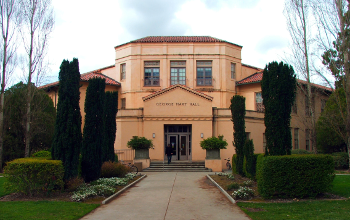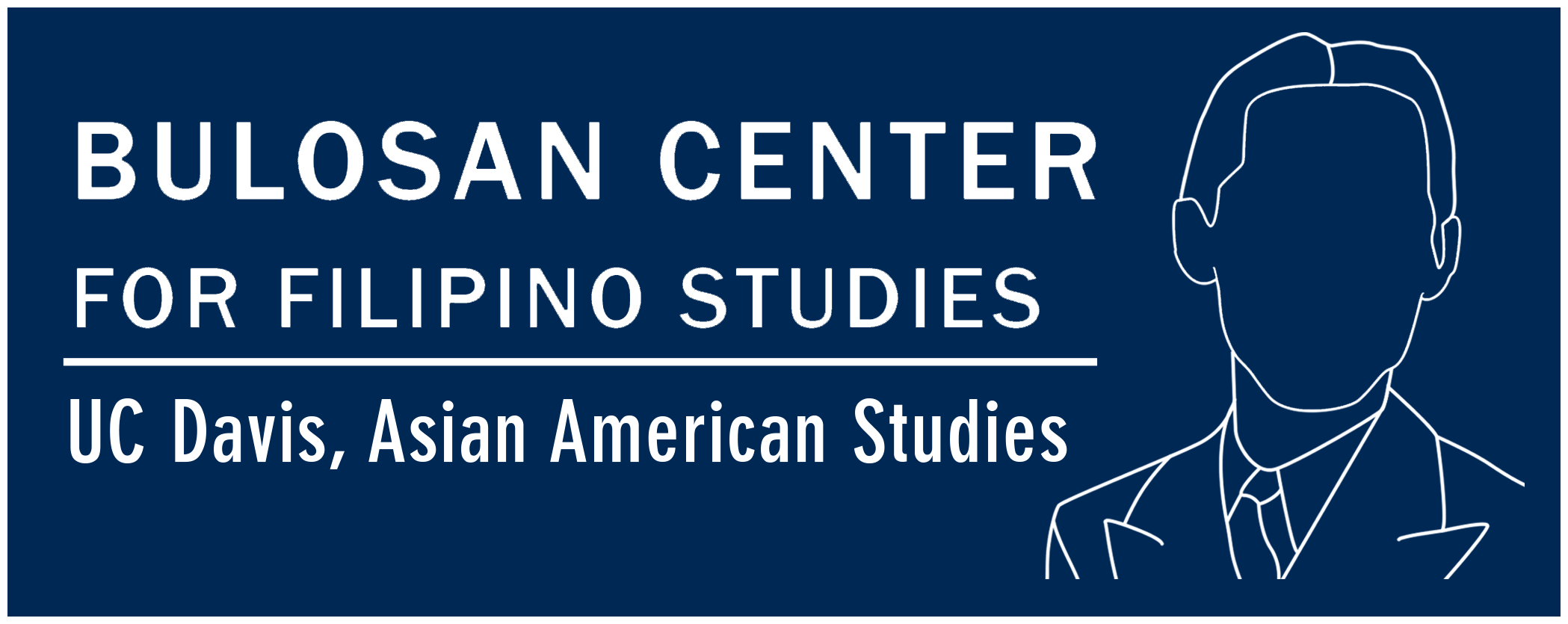Contact Us
Admin Assistant: Angel Truong, ASA Program Coordinator
Email: anjtruong@ucdavis.edu
Asian American Studies Department
University of California, Davis
1 Shield Ave, Davis
CA, 95616
Our Story
Dr. Rodriguez’ s vision for a Filipino Studies Center began taking shape when she accepted a position at UC Davis’ Asian American Studies department in the fall of 2011. Historically, UC Davis has deep ties to the Filipino community. Indeed, the Department of Asian American Studies emerged from the efforts of students who fought for the inclusion of Ethnic Studies programs in California colleges while standing in solidarity with Filipino immigrant farmworkers struggling in the Central Valley. It was this solidarity that sparked protests in 1969 at UC Davis in favor of Ethnic Studies programs, eventually culminating in their implementation.
More broadly speaking, the University of California has a historic relationship to educational institutions in the Philippines—as well as to scholarship on the Philippines—largely because of the country’s status as a former colony of the United States (1899-1946). Former University of California President David Barrows served as Director of Education in the Philippines from 1903-1909. UC Berkeley history and political science professor (ca. 1876) Bernard Moses was a member of the U.S. Philippine Commission from 1900-1902. UC Berkeley anthropology professor Alfred L. Kroeber published the handbook Peoples of the Philippines (American Museum Press) in 1919.
There were several earlier iterations of what eventually became the Bulosan Center. The first was Project Bulosan, which sought to democratize Asian American (including Filipino American) Studies through digital media campaigns and the popularization of the hashtag #projectbulosan. The second was the Welga Project, which marked the first major step towards the establishment of the Bulosan Center.
The Welga Project was a multi-faceted initiative to preserve and promote Filipino American farmworker history. Doing so required creating the Welga Digital Archive, which consists of 12 archival collections and roughly 900 digitized items. To supplement the collections, the Welga Project team conducted twelve oral history interviews, recording the experiences of Filipino Americans who participated in the 1965 Delano Grape Strike and the farmworker movement. Interview participants included Agbayani Village manager Lorraine Agtang, former UFW Vice President Gilbert Padilla, and farmworker volunteer Cynthia Bonta.
Through collaboration with the Filipino American Educators Association of California (FAEAC), primary source material from the Welga Digital Archive was used to draft K-12 course curriculum, which helped to advance the aims of AB123. The pinnacle of the Welga Project was the “Bold Step” 50th anniversary of the Delano Grape Strike event organized in partnership with the Filipino American National Historical Society-Delano in 2015. This anniversary event highlighted the successes and sacrifices of the Filipino “manongs” who risked everything to ensure that fair labor conditions and wages were secured for farmworkers. After financial support for the Welga Project ended, its staff and supporters continued to preserve and promote Filipino American farmworker history on a volunteer basis, continuing to exhibit items from the archive, lecture on Filipino American farmworker history, and develop K-12 curriculum.
By 2018, Dr. Rodriguez was able to assemble a critical mass of incoming graduate students, undergraduates, staff, and past Welga Project members to launch a grassroots fundraising campaign in support of creating what eventually became the Bulosan Center for Filipino Studies. Originally, the goal was to raise $10,000 and use it to continue the work of the Welga Project, invite Filipino Studies scholars to the UC Davis campus, and provide some modest funding for graduate student research. The Tumulong Tayo benefit dinner was organized on September 29, 2018 to launch the Center.
The initial goal of $10,000 was greatly exceeded, with the Center securing nearly $30,000 solely from community donations, allowing for research, education, community engagement, and public history projects to be funded through the next year. It also allowed for the establishment of a physical office space located at 3117 Hart Hall.
In 2019, the state of California granted the Bulosan Center $1,000,000 to facilitate its continued growth. With that money, the Center hired staff and has been able to fully fund the research of several graduate students whose work will have a direct impact on the Filipinx American community.

Carlos Bulosan
Carlos Bulosan was a migrant worker, labor activist and writer. His book America is in the Heart continues to be an important piece of activist-scholarship. While a fictionalized account, it serves as an important chronicle of the real-life struggles of the earliest cohorts of low-wage Filipino workers. Bulosan’s writings served to galvanize those workers, as well as the Filipino community more broadly, to organize themselves to fight against exploitation.
The Center
The Bulosan Center for Filipinx Studies continues Carlos Bulosan’s legacy of uplifting the voices of the most marginalized in the Filipino community in the United States and the diaspora. This is being done through community-engaged research that broadly disseminates knowledge about Filipinos for the purpose of advancing our rights and welfare.
Though Filipinos have one of the longest histories of settlement in the state of California and continues to be one of its largest Asian ethnic groups, we fail to be adequately represented as students and faculty in the University of California, one of the most prestigious public research university systems in the entire country, if not the world. Knowledge production and education on the Filipino diasporic experience, particularly from a community-engaged perspective, while expanding, is still insufficient for addressing our needs.
For instance, though there are statistics that indicate that, among undocumented Asian immigrants, Filipinos constitute the largest share of the population, we have little research on their experiences. Similarly, though news reports and campaigns by Filipino organizations indicate that labor trafficking is an issue plaguing our community, we still do not know much about the mechanisms that lead to their trafficking. If knowledge is power, then the Filipino community is severely disempowered.
For these reasons, research is one of the core pillars of the Bulosan Center. Here we encourage undergraduate, graduate, and community-based scholars at and around UC Davis to pursue projects that prioritize the needs of our community. The Center also creates spaces to promote Filipinx Studies scholarship through its Affiliate Program, which launched at the annual meeting of the Association for Asian American Studies in April 2019, and the Filipinx Studies Research Conference in May, 2019.
In addition to the work produced by members of our core staff, the Center developed “Filipin[x]s Count: A National Survey on FIlipinx American Health and Well-Being” in the 2018- 2019 academic year. The survey will launch in 2019-2020 alongside a “Working Paper Series” on topics significant to the fields of Filipino American and Filipino Studies. Throughout the year we will also pursue plans for a peer-reviewed journal and a book series with a major academic press.
